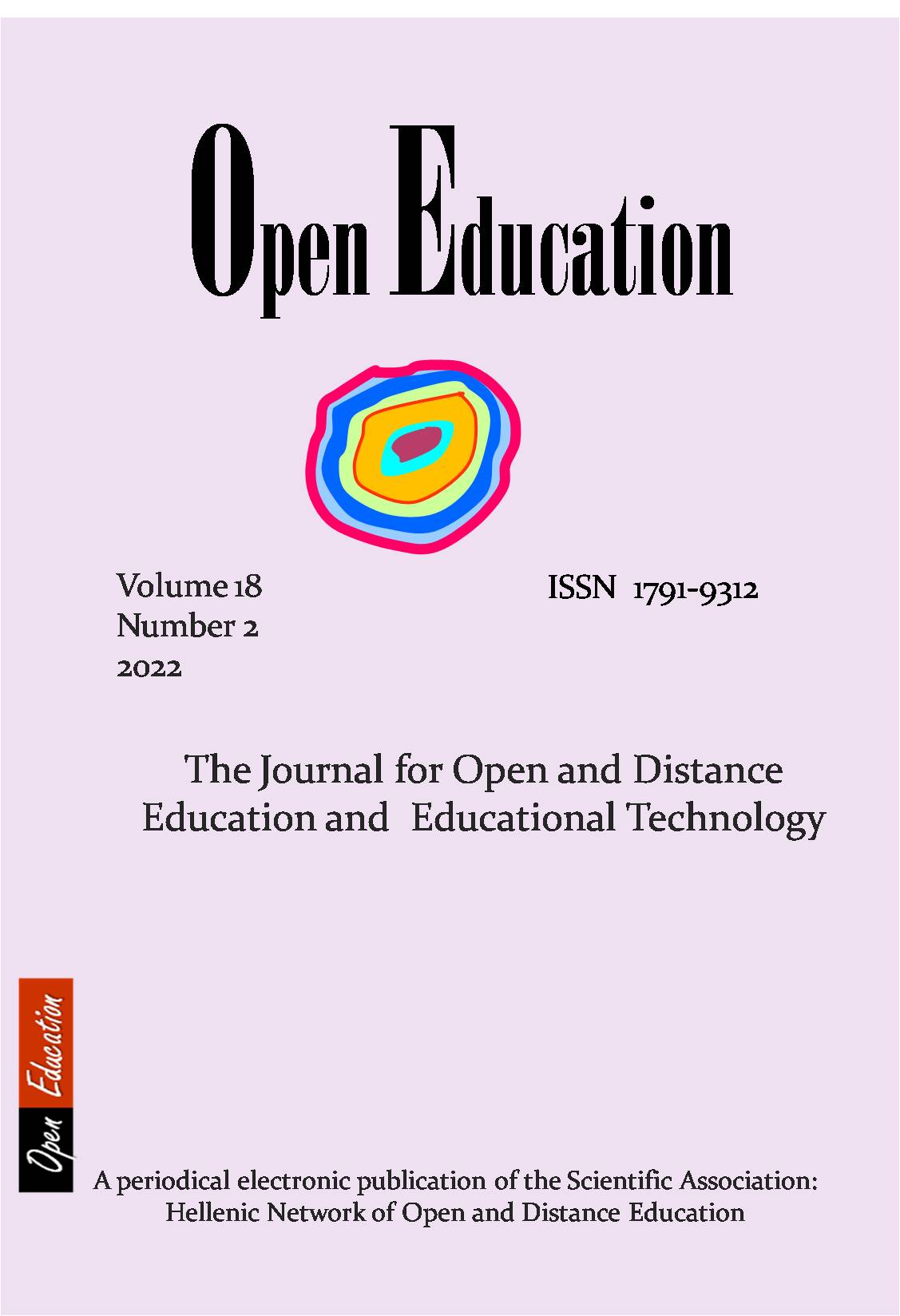Αξιολόγηση εξ Αποστάσεως προγράμματος επιμόρφωσης ηγετικών στελεχών εκπαίδευσης στην ανάπτυξη κοινωνικών και ψηφιακών δεξιοτήτων
Résumé
Στη σύγχρονη εποχή έχει αναπτυχθεί μία ρητορική περί λογοδοσίας, αποτελεσματικότητας και βελτίωσης της ποιότητας του έργου των ηγετικών στελεχών εκπαίδευσης, οι οποίοι πολλές φορές στην επαγγελματική τους καριέρα καλούνται να επιμορφωθούν και να επικαιροποιήσουν τις γνώσεις και τις δεξιότητές τους, ώστε να καταστούν ανταγωνιστικοί. Η νέα κοινωνική και εκπαιδευτική πραγματικότητα οδηγεί επίσης στην αναγκαιότητα καλλιέργειας κομβικών διαπροσωπικών και ψηφιακών δεξιοτήτων για τους σύγχρονους εκπαιδευτικούς ηγέτες, ώστε να ευοδωθεί η επικοινωνία τους με το ανθρώπινο δυναμικό της σχολικής μονάδας αλλά και με το εξωτερικό περιβάλλον της, τους φορείς και τα ενδιαφερόμενα μέρη. Αναγνωρίζοντας την ανάγκη για ποιοτική και καθολική επιμόρφωση των ηγετών εκπαίδευσης και λαμβάνοντας υπόψη τις δύσκολες συνθήκες στην εποχή της πανδημικής κρίσης, γίνεται κατανοητό ότι οι Νέες Τεχνολογίες και το Διαδίκτυο δύνανται επιτυχώς να συμβάλουν στην κάλυψη των επιμορφωτικών αναγκών των διευθυντικών στελεχών εκπαίδευσης. Το ερευνητικό ενδιαφέρον της παρούσας μελέτης εστιάστηκε στην παρουσίαση της υλοποίησης και της αξιολογικής διαδικασίας ενός προγράμματος επιμόρφωσης που διεξήχθη εξ ολοκλήρου με τη μεθοδολογία της εξ Αποστάσεως Εκπαίδευσης και είχε ως ομάδα-στόχο τα διευθυντικά στελέχη Δευτεροβάθμιας Εκπαίδευσης για την ανάπτυξη κοινωνικών και ψηφιακών δεξιοτήτων. Αναμένεται ότι τα αποτελέσματα της παρούσας μελέτης θα αποτελέσουν εφαλτήριο για προγραμματισμό και εφαρμογή παρόμοιων επιμορφωτικών δράσεων, αλλά και θα συνεισφέρουν στη διαμόρφωση εκπαιδευτικής πολιτικής σχετικά με προγράμματα προετοιμασίας και συνεχιζόμενης επαγγελματικής επιμόρφωσης και ανάπτυξης ηγετικών στελεχών εκπαίδευσης σε παρόμοια θεματολογία.
Article Details
- Comment citer
-
- Rubrique
- Μέρος πρώτο / Section 1

Ce travail est disponible sous licence Creative Commons Attribution - Pas d’Utilisation Commerciale - Partage dans les Mêmes Conditions 4.0 International.
Οι συγγραφείς των άρθρων που δημοσιεύονται στο περιοδικό διατηρούν τα δικαιώματα πνευματικής ιδιοκτησίας επί των άρθρων τους, δίνοντας στο περιοδικό το δικαίωμα της πρώτης δημοσίευσης. Άρθρα που δημοσιεύονται στο περιοδικό διατίθενται με άδεια Creative Commons 4.0 και σύμφωνα με την άδεια μπορούν να χρησιμοποιούνται ελεύθερα, με αναφορά στο/στη συγγραφέα και στην πρώτη δημοσίευση για μη κερδοσκοπικούς σκοπούς και με δικαίωμα τροποποίησης μόνον με παρόμοια διανομή (αν αναμείξετε, τροποποιήσετε, ή δημιουργήσετε πάνω στο υλικό, πρέπει να διανείμετε τις δικές σας συνεισφορές υπό την ίδια άδεια όπως και το πρωτότυπο).


